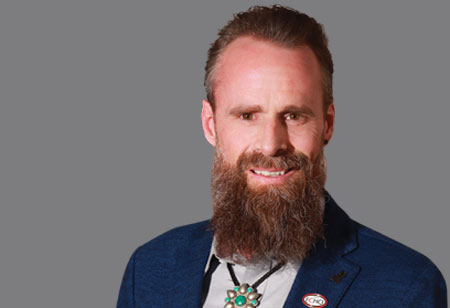

Thank you for Subscribing to Gov Business Review Weekly Brief

Communities across the United States are confronting a fentanyl crisis that shows no signs of slowing. This synthetic opioid, often invisible until it’s too late, has upended families, overwhelmed emergency systems and exposed the limits of our current behavioral health infrastructure.
As the crisis deepens, one group continues to emerge as a vital force in the fight: Certified Peer Support Workers. These are individuals with lived experience, people who have survived addiction, incarceration or mental health challenges and now walk alongside others on their recovery journeys. Their value lies not in theory, but in truth: they’ve been there. They understand what the textbooks can’t teach. Yet, as peer support becomes more widely adopted across public health, criminal justice and social services, a troubling trend has emerged. In many cases, we are celebrating peer support without safeguarding it. We’re inviting people with incredible resilience into professional roles, but not always equipping them with the supervision, standards or systemic support they need to thrive. The result is a profession that risks burnout, blurred boundaries and inconsistent care—at a time when communities can least afford it. I’ve seen both sides. As someone who works in local government and as a person in long-term recovery, I’ve had the privilege of supporting others while still growing myself. Over the past two years, I’ve also been honored to serve on the board of directors for “Eagles Unlimited,” a nonprofit in New Mexico that supports individuals on state probation and parole. As the first person with a background like mine to be invited into that space, I try to bring a grounded perspective and always learn from those around me. Why Peer Support Matters There’s a reason peer support is gaining traction: it works. But peer support is not simply about shared experience. It’s a skilled profession. Peer workers must be trained not just in recovery models, but in ethics, trauma-informed care, crisis navigation and professional boundaries. Their role demands emotional intelligence, cultural competence and the ability to hold space for another person’s pain without reactivating their own. The Risks of Underinvestment Without adequate oversight and ongoing support, even the most committed peer workers can find themselves in over their heads. I’ve seen programs where new peer staff were given titles but no training, placed in high-stress environments without proper supervision or asked to serve in dual roles that compromised their recovery.For individuals navigating recovery, connection can be more powerful than instruction. Peer workers bridge gaps that no policy or provider can fully reach. They humanize systems that too often dehumanize.
I agree We use cookies on this website to enhance your user experience. By clicking any link on this page you are giving your consent for us to set cookies. More info